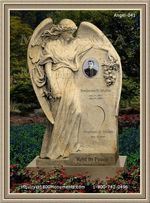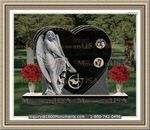|
What To Know When Showing Up At Jewish Funeral Rites
Just like all communities, Jews have certain customs that they observe when they are burying a loved one. The strictness of the customs observed normally depends on whether the family of the deceased are radical Jews or conservative Jews. The customs carried out at a Jewish funeral are meant to provide respect to the dead person as well as the mourners.
Burial is normally carried out within a day when a person dies. The burial may be postponed for another day or two, so as to wait for any close family member who has to travel from a far place to attend the burial. It's totally up to the family to decide whether the burial should be postponed or whether it should go ahead as required by custom.
Viewing of the body is not allowed. The casket is normally sealed during the memorial service and burial. The casket chosen should be simple and be made out of wood only. No metallic parts are allowed as metal is not biodegradable.
For the process of decomposition to take place naturally, embalming is not allowed. However, since Jewish customs are subject to local laws, it may be necessary to have the body embalmed. This is so as to satisfy the public health regulations set by the local council.
The burial ceremony does not take a long time. It can be completed in less than half an hour. Flowers are normally considered as frivolous adornments, so they are often avoided at burials. If you wish, you can choose to have a small floral tribute, as long as the officiant is not opposed to it. Mourners cannot talk to the attendees until the whole burial ceremony is over.
At a Jewish funeral, the attendees form a double line when leaving the site after the burial. The family members of the deceased walk through the pathway that has been formed. This gives an opportunity to the attendees to greet and offer words of comfort to the bereaved.
|
|



























